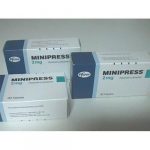Contents
- 1 Weight Loss Surgery Quiz
- 1.1 Safest Weight Loss Surgery
- 1.2 Eligibility for Weight Loss Surgery
- 1.3 Cost of Weight Loss Surgery
- 1.4 Diet After Weight Loss Surgery
- 1.5 Hospital Stay After Weight Loss Surgery
- 1.6 Expected Weight Loss After Surgery
- 1.7 Exercise After Weight Loss Surgery
- 1.8 Weight Regain After Weight Loss Surgery
- 1.9 Long-Term Benefits of Weight Loss Surgery
Weight Loss Surgery Quiz
Weight loss surgery, also known as bariatric surgery, helps severely obese people lose weight by reducing stomach size and changing the digestive tract. This leads to fewer calorie intake. Bariatric procedures can also affect intestinal hormones to reduce hunger and increase feelings of fullness.
Safest Weight Loss Surgery
- Gastric bypass (Roux-en-Y gastric bypass, or RYGB): Part of the stomach is closed off and connected to the small intestine. This results in the fastest and greatest weight loss, but it is the riskiest procedure.
- Gastric sleeve (sleeve gastrectomy): A large portion of the stomach is removed, leaving a narrow "sleeve." This is a safer option than gastric bypass.
- Duodenal switch surgery: A combination of a gastric sleeve and gastric bypass surgery.
- Laparoscopic adjustable gastric band (lap-band): A silicone ring with an expandable balloon is inserted around the top of the stomach to create two compartments. This is the least invasive procedure.
- Gastric balloon: A balloon is inserted into the stomach, reducing space for food. It’s safe but does not result in significant weight loss.
Eligibility for Weight Loss Surgery
A person’s body mass index (BMI) determines eligibility for weight loss surgery. A BMI of 30 or greater is considered obese.
You may qualify for weight loss surgery if:
- Your BMI is above 40 or you are more than 100 pounds overweight and have not responded to other weight loss methods.
- Your BMI is above 35 and you have an obesity-related medical problem.
- Your BMI is above 30 and you have certain medical conditions.
Cost of Weight Loss Surgery
The cost of weight loss surgery varies depending on the procedure and location. Insurance coverage varies as well.
The average cost nationally ranges from $14,000 to $23,000, with sleeve gastrectomy being less expensive and gastric bypass being more expensive.
Diet After Weight Loss Surgery
Following weight loss surgery, you will progress from a clear liquid diet to full liquids, pureed foods, and then soft solid foods. Emphasize protein sources, carbohydrates, and fiber.
Consult with a nutritionist once you reach your goal weight. High protein, low fat, and low-calorie foods are recommended. You may need vitamin and mineral supplements due to reduced nutrient absorption.
Hospital Stay After Weight Loss Surgery
Patients spend about two to five days in the hospital after weight loss surgery, depending on the procedure. Longer stays may occur due to complications. Follow-up visits are scheduled post-op.
Avoid strenuous activities and heavy lifting for three to six weeks after surgery. Prevent blood clots by avoiding long periods of sitting or standing still.
Expected Weight Loss After Surgery
Patients can lose 50 to 80 percent of their excess weight after weight loss surgery. The amount varies based on the procedure and individual factors.
- Duodenal Switch: 80% loss of excess weight
- Gastric Bypass: 70% loss of excess weight
- Gastric Sleeve (Sleeve Gastrectomy): 60% loss of excess weight
- Gastric Band (Lap Band): 50% loss of excess weight
Exercise After Weight Loss Surgery
Patients can begin walking shortly after surgery. Strenuous activities and heavy lifting should be avoided for three to six weeks. Low impact activities are recommended.
Wait until surgical incisions are healed before swimming.
Weight Regain After Weight Loss Surgery
Weight regain is common after weight loss surgery. It’s important to remember that surgery is a tool, but long-term success requires dietary and lifestyle changes. Education and follow-up appointments are essential for maintaining weight loss.
Long-Term Benefits of Weight Loss Surgery
- Improved blood pressure
- Control of type 2 diabetes
- Reduced body pain
- Improved urinary incontinence
- Reduced risk of sleep apnea
- Reduced knee and hip pain
- Improved cholesterol levels
Images provided by: iStockPhoto
This tool does not provide medical advice. It is intended for general informational purposes only and does not address individual circumstances. It is not a substitute for professional medical advice, diagnosis, or treatment. If you think you may have a medical emergency, immediately call your doctor or dial 911.
© 1996-2024 MedicineNet, Inc. All rights reserved.


